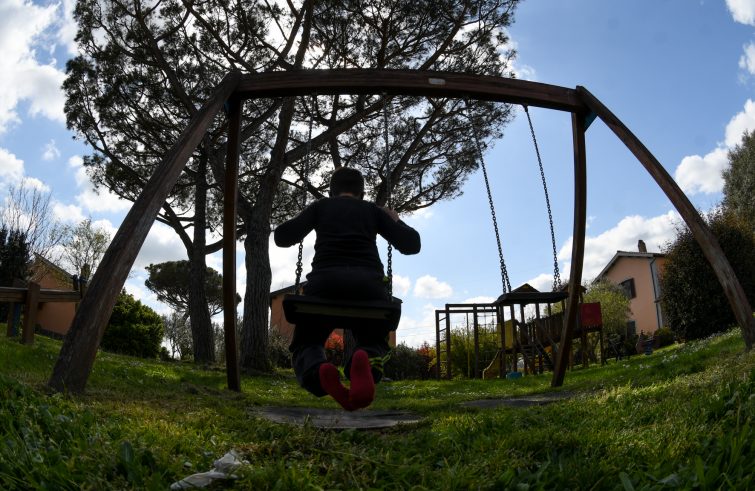
Was it the fault of the police or of the social services if toddler Bronson Battersby died of starvation and dehydration during the Christmas holidays after his father, Kenneth, 60, had died of a sudden heart attack in the Skegness flat where they lived? In the UK, the debate on this tragic story focuses on reconstructing what had happened. Cristina Gangemi, a former advisor to the Bishops’ Conference of England and Wales, and Raymond Friel, executive director of Caritas Social Action, the umbrella organisation that brings together the major Catholic charities, examine the root causes of this tragic death in an interview with SIR.
One of the poorest areas in the country. Large flower bouquets have been placed outside the ‘basement flat’, below street level with very little daylight, in Skegness, one of the country’s poorest districts, where two-year-old Bronson Battersby died shortly after Christmas. He was discovered cuddled up next to his father when British police raided the house in early January after a social worker had unsuccessfully rung the doorbell several times.
Flowers were placed next to the child’s tricycle by the neighbours, still in shock.
Two investigations into the causes of this tragic death are underway, and it is possible that mistakes were made by social services and the police. What is certain is that ‘Baby Bronson’, as he has been dubbed by the British media, was living in a precarious environment as his father, Ken, 60, who loved him dearly, was unemployed and extremely poor, and his mother, Sarah Piesse, 43, from whom he was divorced, has seven other children by different partners, a drinking and drug-addiction problem.
The voices of experts familiar with this reality. Cristina Gangemi, a former advisor to the Bishops’ Conference of England and Wales currently works with the Pontifical Council for Culture in Rome, and Raymond Friel, executive director of Caritas Social Action, the social services agency of the Catholic Bishops’ Conference of England and Wales, an umbrella organisation of some fifty agencies dedicated to helping vulnerable children and adults, the elderly, the homeless, migrants, refugees and disabled people, asylum seekers and HIV-positive persons, offer a different analysis of this sad story.
The value and dignity of the human person has been lost. “The child lived in a broken family due to the divorce of his parents, although I believe that the causes of his death are also to be found in contemporary British society, which is so deeply divided into social classes, and which has one of the widest gaps between rich and poor, and it is widening. Values are also at stake,” explains Cristina Gangemi. “In present-day Britain, which is deeply secularised, pragmatism prevails and there is a somewhat eugenic approach to human existence. Those who can work, earn a living and are successful can be part of society, while those who can’t are on the margins. In other words, human beings are not regarded as having any intrinsic value, any dignity of their own, the dignity they have as persons created in the image and likeness of God.”
This mentality could possibly “have prevailed among the neighbours who might have heard the baby crying but did not feel it was their place to intervene.”
“In today’s British society, the meaningful human relationships that allow us to relate to our fellow human beings have deteriorated to a great extent. Not to mention the British reputation for being reserved. We are a very withdrawn, almost socially inhibited people. The Brits rarely reach out to strangers, someone they do not know, someone who is not a relative or a friend. This mentality weakens the social fabric and the sense of togetherness that binds a community together.”
Four million children live below the poverty line. Raymond Friel describes the poverty and social isolation that was undoubtedly a factor in the death of baby Bronson Battersby. The level of deprivation in the UK today is shocking,” he said. “There are around eight million people and four million children who do not have the bare minimum to survive. Today, the social security benefits on which they depend for survival are insufficient to guarantee a decent life. “But that is not the whole story. The system is complicated and has become digitised, with many people struggling to understand how it works or making mistakes for which they are penalised. There is also a widespread belief that people on benefits don’t want to work, which is often not the case, and many people who are in employment remain mired in poverty because their wages are so low that they have to resort to food banks and moneylenders”. Caritas offers workshops “where tutors help people learn how to navigate the welfare system and provide food and furniture. Social isolation is another aspect of poverty, given the country’s emphasis on individualism and the profit-driven economy. Digitalisation is an additional obstacle because it deprives people of the human contact that is so important.”









